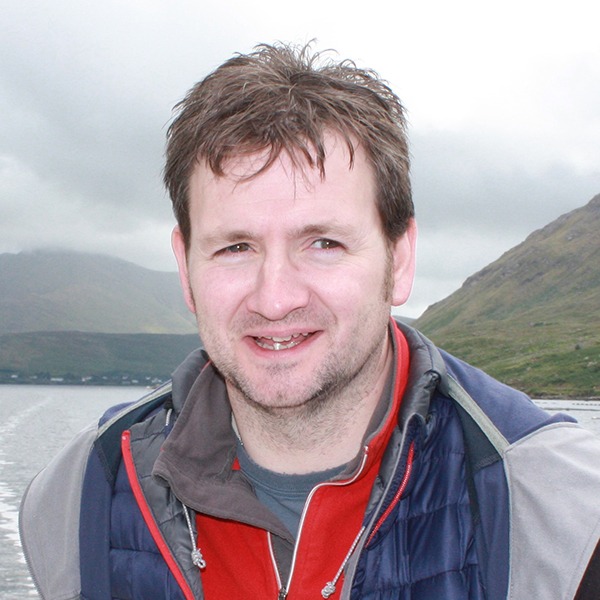Equine Rescue - Vets as Frontline Responders during Emergency & Disaster
Species
Equine
Contact Hours
3 Hours
Early Booking Deadline
Thu, 01 January, 1970
Registration Deadline
Thu, 01 January, 1970
Language
English
Discipline
Anaesthesia & Pain Management
Emergency & Critical Care
Internal Medicine – Endocrinology, Haematology, Infectious Diseases, Parasitology & Oncology
Ophthalmology
Surgery
Industry Partners
Global

Veterinary Partners
Global


Recorded on: 6th April 2021
Panelists:
Jim Green – British Animal Rescue and Trauma Care Association, UK
Patrick Pollock MSc, BVSc, CertES(Soft Tissue), DECVS, DEVDC(Eq), MRCVS – University of Edinburgh, UK
Claudia Sonder DVM – Napa Valley Equine, USA
Moderator:
Nicola Housby-Skeggs BVetMed, CertAVP, MRCVS – BARTA Board Chair, Veterinary Director, The Horse Trust
CONTENT DESCRIPTION
UK Fire and Rescue Services are called to around 2500 large animal rescue incidents each year. National guidance for fire and rescue services and the UK’s Civil Contingencies Act recognise the importance of trained veterinary responders attending and supporting such incidents. In countries such as the United States, frequent wide scale disasters often involve and create associated needs amongst animals, veterinary intervention is therefore an essential element of disaster preparedness, response and recovery.
These scenarios are complicated; often the owner is not present or is incapacitated, multiple stakeholders and agencies are present at the scene with competing priorities and establishing lines of communication can be difficult. In a thirty-year career an equine vet can expect to sustain 7-8 injuries – rescue and disaster environments contain many elements that increase this risk. Adrenalised casualties can be difficult to manage and assess in any environment; entrapment further limits the clinician’s ability to access, triage and establish viability. Understanding the complexity of the environment, the factors needing consideration, establishing lines of communication and embedding yourself within the response team will result in calmer, well managed and successful rescues.
An international panel of multidisciplinary veterinary and non-veterinary experts consisting of an animal rescue specialist from the fire services and seasoned veterinarians with expertise in race horse injuries, individual horse rescues, horse accidents in developing countries and managing animals in natural disaster settings, will be discussing the following scenarios:
- Individual Equine Entrapment – Horse in Transport
- Major Incident on a Racecourse – Human & Equine Injuries
- Wildfire Incident – Wide Scale Evacuations from Urban/Rural Interface
Claudia grew up in Massachusetts as the fourth of five children. She professed to her parents at the age of five that she wanted to be a veterinarian and spent her childhood years riding and caring for horses. She showed hunters and jumpers as a teenager and worked for a large equine show jumping barn. Claudia attended Tufts University as an undergraduate. where she competed regularly in the Intercollegiate Equestrian circuit while enrolled in the pre-med program. Claudia was accepted into UC Davis Veterinary School in 1990 and graduated after completing the equine track in 1995.
Dr. Sonder has a long history with this vet clinic, both as an associate veterinarian and as previous owner. She is happy to be back in the saddle as an owner-partner at Napa Valley Equine. Dr. Sonder has a special interest in diagnosing and treating lameness in sport horses, utilizing the latest in digital imaging and joint injection procedures. She also enjoys equine neonatal medicine and assisted reproduction. In her "spare" time Claudia enjoys spending time outdoors with her three children, Molly, Mason and Merren.
Jim comes from the New Forest in Southern England where he began his career as a forest manager, working in private and state managed forests including a season as a first attack forest firefighter in Victoria, Australia.
In 1996 Jim joined Hampshire Fire and Rescue Service as a firefighter where his rural background was instrumental in developing awareness of a range of rural issues, including response to animal rescues, agricultural fire safety and wildfire. But it was dedication to animal response that defined Jims career. For 12 years Jim led a local and national drive to improve knowledge and skills for this challenging operational incident type, orchestrating teams within Hampshire and training rescue Team Leaders and veterinarians throughout the UK and further afield.
Jim is internationally recognised and has been keynote speaker or coordinator of conferences in the UK, Turkey, USA, Australia and Europe. He is recipient of national awards for his work through the RSPCA, National Equine Forum and British Horse Society. He supported the vet services team at the 2012 Olympics and lectures at veterinary universities throughout the UK.
In 2017 Jim took a sabbatical and worked at the University of California, School of Veterinary Medicine, helping promote joint understanding within veterinary and fire fighting communities in preparation for the needs of animals during rescues or disasters.
Jim co-founded BARTA in 2012 and together with Josh Slater, promoted the growing initiative alongside their regular careers.In 2019 BARTA became a subsidiary of the Horse Trust and this partnership enabled Jim to continue the journey as full time Director of BARTA.
Jim continues to respond operationally to animal incidents through his on call role as an Animal Rescue Specialist with Hampshire Fire and Rescue Service.
Nicky graduated from the Royal Veterinary College in 2007 and joined The Royal Army Veterinary Corps. She served for 10 years: Firstly, with Military Working Dogs preparing them and their handlers for deployment to Iraq and Afghanistan. Later she served as the veterinary officer for The King’s Troop Royal Horse Artillery and The Household Cavalry Mounted Regiment where she developed Large Animal Rescue training as a core activity for the regiments. During this time, she was part of a large and complex team responsible for planning and providing emergency cover for high profile public events.
After leaving the military Nicky worked in ambulatory equine practices for 2 years before moving to the charity sector. She now works as the Veterinary Director for The Horse Trust charity providing both the onsite veterinary provision for 150 residents, she provides internal and external training in many areas of equine care as well as providing part of the RVC final year rotations. Nicky is the Chairperson for the Board of directors for the British Animal Rescue and Trauma Association (BARTA).
Getting involved in BARTA early in her veterinary career, the skills learnt gave Nicky a huge amount of confidence in tackling emergency and rescue scenarios. Throughout her time in the mounted units Nicky worked with an incredibly competent rescue team and used the skills and techniques they were trained in to resolve some complex situations in the public eye. Working closely with BARTA to share experiences, learn, and further develop the training.
Patrick is Professor of Veterinary Surgery and Remote and Rural Medicine at the Universities of Glasgow and Edinburgh and the Director of the Glasgow Equine Hospital and Practice. Patrick has worked in general and specialist veterinary practice for 25 years and is a specialist in large animal surgery with an interest in trauma, wound healing and supporting vets and animal owners in resource limited settings across the globe. A Fellow of the Royal College of Veterinary Surgeons for meritorious contribution to clinical practice, Patrick is involved in projects with some of the world's 150 million working horses, donkeys and mules, including setting up training programs for vets and animal owners, and has developed networks for veterinary practitioners in remote rural and resource limited settings including telemedicine and in field support from the Scottish Highlands and Islands to The Gambia. Patrick is undertaking a master’s program in Disaster Medicine and Emergency Management and is collaborating with the Worldwide Veterinary Service to develop guidelines to support the animals of displaced people.
Working with the British Animal Rescue and Trauma Association (BARTA), The Scottish Fire and Rescue Service and the veterinary profession, Patrick introduced training for incidents involving animals, animal rescue, and for supporting animals in disasters. In addition, he has worked to introduce training for first responders and vets in the high stake’s environments of equine competitive events.
Patrick is an international speaker and researcher and has introduced transformative training for veterinary undergraduates in resilience, performance, team dynamics and leadership.
Patrick is inspired by developing partnerships and collaboration between those working in all types of high stakes environments and improving the health and wellbeing of people and animals.
A keen runner, kayaker and piper, Patrick lives with his partner, and three children in west central Scotland
Veterinary Student (Requires proof of status)
Online Panel Discussion
USD 35.00
Qualified Vet
Online Panel Discussion
USD 85.00
Intern/Resident (Requires proof of status)
Online Panel Discussion
USD 65.00
Vet Nurse/Vet Tech (Requires proof of status)
Online Panel Discussion
USD 65.00
If the options you are looking for are unavailable, please contact us.
No tax will be added unless you are a UK taxpayer
Choose currency at checkout


















